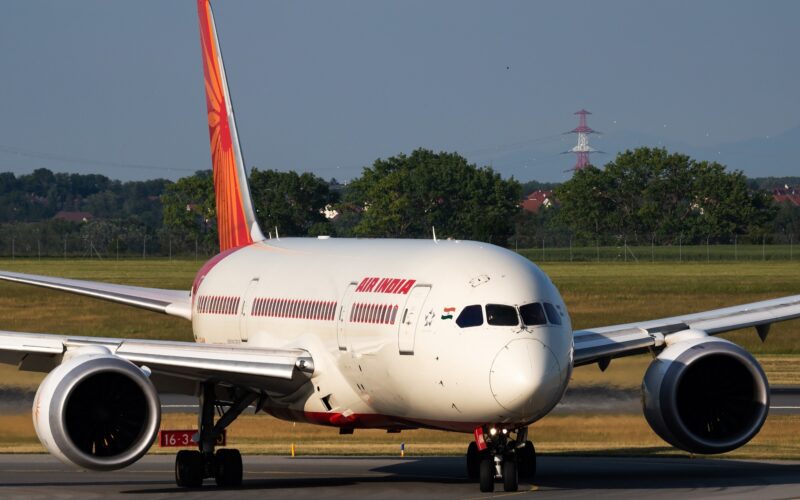Air India is reportedly closing in on a deal with both Airbus and Boeing to acquire up to 500 new aircraft, of which 400 would be narrow-body jets and 100 twin-aisle aircraft, according to sources close to the matter.
The information was reported by Reuters, which also indicated that the Delhi-based company is eyeing the Airbus A350, Boeing 787, as well as the Boeing 777. If the final details are completed in the coming days, it would top American Airlines’ record order for 460 narrow-body aircraft in June 2011. The same order also sparked the development of the 737 MAX, as the yet-to-be-announced aircraft at the time was described as the “expected new evolution of the 737NG [737 Next Generation – ed. note], with a new engine that would offer even more significant fuel-efficiency gains over today’s models,” American Airlines press release read at the time.
Incidentally, Air India is also eyeing the Boeing 737 MAX for its low-cost subsidiary, Air India Express. According to a report by the Economic Times, the airline is looking to finalize an agreement with 50 firm orders and 100 options for Boeing’s narrow-body jet, even if it is also considering the Airbus A320neo family.
Revamping the Air India fleet
Since Tata Sons, an India-based conglomerate, once again took control of Air India, it has been on a mission to turn it into a world-class airline.
The conglomerate, which originally established the airline in 1932, passed it over to the Indian government as the latter purchased a majority stake in the carrier in 1953 In October 2021, the Indian government selected Tata’s bid for the company to once again take over Air India, as the airline struggled to showcase a profit for numerous years. The acquisition was finalized in January 2022.
Tata Sons also had stakes in Vistara (51%) and AirAsia India (83.67%). AirAsia sold its stake in its subsidiary to the Indian group in November 2022.
The same month, Tata announced that it would also merge Vistara into Air India, reiterating its goal to make the flag carrier of India into a “world-class airline.”
The merger, if approved by regulators and authorities, would allow Tata to retain a majority stake in the Indian flag carrier, with Singapore Airlines, the now-former minority shareholder of Vistara, obtaining a 25.1% stake in Air India. Additionally, the Singaporean carrier would invest up to INR50.2 billion ($615 million) into the Indian airline.
Shortly after, Air India announced that it would invest at least $400 million to refurbish the cabins of 27 Boeing 787-8 and 13 Boeing 777 aircraft, as the current Chief Executive Officer (CEO) of the airline, Campbell Wilson once again pointed out that with new leadership, the carrier has “committed to attain the highest standards of product and service befitting of a world-class airline”.
Currently, Air India has 112 aircraft that are on average 10.1 years old. An order of such magnitude would significantly improve the airline’s efficiency and product onboard. While the Indian carrier has 68 Airbus A320 family aircraft, its low-cost subsidiary Air India Express has 24 Boeing 737s that are aging and even older than the main line’s fleet (11.9 years). According to the report that outlined Air India’s interest in the 737 MAX, Boeing has offered an immediate delivery of 50 737 MAX aircraft, which were previously slated for China Southern Airlines.
The Civil Aviation Administration of China (CAAC) has not yet ungrounded the Boeing 737 MAX following the second fatal crash in Ethiopia in March 2019. Planespotters.net data reveals that China Southern Airlines has 26 built-but-not-delivered 737 MAX aircraft. Some of them flew for the first time some three-and-a-half years ago and have been in storage ever since the groundings. Yet Air India has kept an interest in acquiring some of the Airbus narrow-body jets, as Vistara, the to-be-merged carrier, owns and operates 46 Airbus A320neo and A321neo aircraft.
While Air India mulls which manufacturer to go with, it has been leasing older aircraft, such as ex-Delta Air Lines Boeing 777-200LRs. It is scheduled to receive five of the second-hand jets, as well as other Airbus A320 family aircraft, potentially eyeing even more A320s and 777s in the near-term future.

